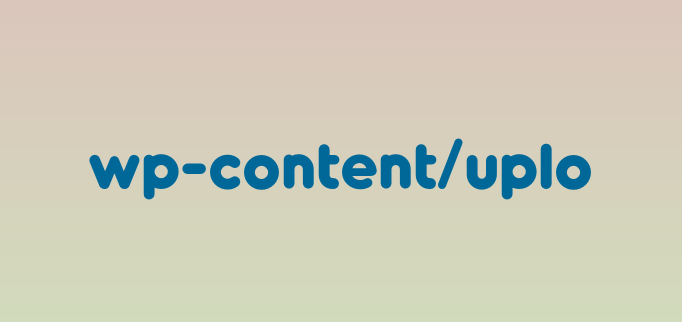EARTH RIGHTS CONFERENCE
A space for dialogue and co-creation about the idea that nature, not just humans, have rights.
Can this idea be the foundation for a new dimension of respect and harmony between humanity and the planet? The legal and existential dimensions of this question are raised and examined, in dialogue with leading voices for Earth rights from different parts of the world. This is the second international conference on Earth rights arranged by the Sigtuna Foundation in cooperation with Lodyn and Cemus.
REGISTRATION NOW OPEN!
WHEN
May 10-11, full days
REGISTER
Register at Sigtunastiftelsen
Place is important. 100 years ago the Sigtuna Foundation was built with the aim to inspire human thought and reflection. Society has changed in many ways since then, but the ambition is still the same: to offer an open space for people with different backgrounds, traditions and viewpoints to meet, interact and learn from one another in atmosphere of mutual respect. A better place for discussing the relationship between humans and nature is hard to find. Visit Sigtuna Foundation

PROGRAMME
FRIDAY May 10
9.00 Coffee and registration
10.00 We are here. Welcome and introduction
Nature´s rights in law – processes and practice
Ecological Jurisprudence: Going beyond Mechanistic Law – Henrik Hallgren, Lodyn
The Lake Erie Bill of Rights – People rising for nature in the US. Mari Margil, Community Environment Legal Defense Fund
How The Amazon became a living breathing entity with Rights in the eyes of the Law. Gabriela Eslava Bejarano, Dejusticia
To address climate change, does Culture need a new relationship with Nature? Panel discussion.
12.00 LUNCH
13.00 Parallell workshops:
- Singing the world
- Nature’s Rights in the Convention on Biological Diversity
- Sami moratorium on mining
- Rights of nature for Land owners – partnership with the Land
14.30 A meeting with Mother Earth – outdoor activity
15.45 Ecocide and Rights of Nature in Sapmi – a report
16.00 Tribunal on the Rights of Lake Vättern
18.00 Break
19.00 Dinner
21.00 Evening programme: Voices for Nature
SATURDAY May 11
from 7.00 BREAKFAST
8.30 Morning celebration for the Earth (outdoors)
The worldview reflected in Rights of Nature
9.15 Tribunal on the Rights of Lake Vättern – decision from the judges
10.00 Peace with the Earth: indigenous perspectives on Rights of Nature. Tom Goldtooth
11.00 Parallell workshops:
- A European Hub within the Global Alliance for the Rights of Nature
- I am Nature, I am Artificial – am I Aware?
- Ecopsychology, animism and the Soul of the World
- Indigenous Dialogue for Earth Rights
- Inventing the Universities we need
12.30 LUNCH
13.30 How do we co-create harmony with nature? A Learning Ecosystem
Interactive session: where do we go from here?
15.30 Fika and closure.
WORKSHOPS FRIDAY
WORKSHOPS SATURDAY
Like us on Facebook for updates!
CO-CREATORS

TOM GOLDTOOTH
Tom BK Goldtooth, Dine’/Dakota, United States is the Executive Director of the Indigenous Environmental Network, an international indigenous NGO based in Bemidji, Minnesota near the border of United States/Canada. A social change maker within the Native American community for over 36 years, has become an internationally renowned environmental, climate and economic justice leader, working with many Indigenous People and social movements around the world. Tom co-produced the award-winning documentary, Drumbeat for Mother Earth, which addresses the effects of bio-accumulative chemicals on indigenous people. Co-founder of the Global Alliance for the Rights of Nature. Nationality: United States. President of the Fourth Rights of Nature Tribunal in Bonn, Germany.

KERI FACER
Keri Facer is Professor of Educational and Social Futures at the University of Bristol and the current Zennström Climate Change Leadership professor at Uppsala University. She works on rethinking the relationship between formal educational institutions and wider society and is particularly concerned with the sorts of knowledge that may be needed to address contemporary environmental, economic, social and technological changes.

JENNI LAITI
Jenni Laiti is a Saami artivist, indigenous rights activist and traditional Saami craft maker. She is from Aanaar, Finnish side of Sápmi and lives now in Jåhkkåmåhkke, Swedish side of Sápmi with her reindeer herding family. Laiti is a member of Suohpanterror collective,
who creatively promotes indigenous Saami rights and fights against colonization and exploitation of Sápmi in an artivistic way.
Laiti has been active in the Saami civil society since she was 16 years. She won the Tsumbaráigi award for her unwavering work for the Saami rights in 2014. In recent years she has been active in the fight against a planned mining project in her home village, for climate
justice in Sápmi and local self-determination in the Deatnu river system. Laiti´s artivistic work composes culture jamming, direct action, performances and community art. Her work deals colonialism, decolonialism and right to one´s own culture and land, traditional knowledge and sustainability.
who creatively promotes indigenous Saami rights and fights against colonization and exploitation of Sápmi in an artivistic way.
Laiti has been active in the Saami civil society since she was 16 years. She won the Tsumbaráigi award for her unwavering work for the Saami rights in 2014. In recent years she has been active in the fight against a planned mining project in her home village, for climate
justice in Sápmi and local self-determination in the Deatnu river system. Laiti´s artivistic work composes culture jamming, direct action, performances and community art. Her work deals colonialism, decolonialism and right to one´s own culture and land, traditional knowledge and sustainability.

PER JOHANSSON
Per thought he was going to be a zoologist. But some rather esoteric experiences made it necessary for him to delve into the world of the mind, rather than that of nature. After a while he realised that mind and nature must be the same, in some strange way. What to do? Well, he avoided the university as much as possible. Even so, he got a PhD in human ecology at Lund University, eventually finishing a thesis called The Lure of Origins. He left the university in 2007 and is now a consultant, writer, speaker, maker of radio programmes, and an enthusiastic collaborator with various artists. Now and then he also works as an independent expert for the European Commission on matters of culture. His pod radio shows with well known culture journalist Eric Schüldt – Människan och maskinen, Kunskapens träd and Myter & Mysterier – have acquired something of a cult status in Sweden.

NIKLAS HÖGBERG
Niklas Högberg is a practitioner of ecopedagogy, transformative leadership and inner transition since 30 years. Early on he got involved with strategic and innovative organizations to implement social change to end hunger and poverty. Through UN-related initiatives, he carried out programs and projects to empower social sustainability based on people-centered and participatory approaches, both in South and North. During the last ten years, he has integrated his experiences of empowering sustainable change based on inner leadership, modern science, transformational activism as well as indigenous wisdom. He was part of pioneering the inner transition movement in Sweden through the work of Pachamama Alliance, including rights of nature.

HANA BEGOVIC
Hana Begović is the Organizer at the Global Alliance for the Rights of Nature, in Ecuador, and holds a degree in Sustainable Development, Globalization and Human Rights. She has also studied Latin American movements and been engaged in various initiatives in Sweden, Bosnia and Ecuador concerning women’s rights, indigenous rights, climate change and urban sustainability. Recently, she was the logistics coordinator for the launch of the historical proposal Kawsak Sacha in Quito, a proposal developed by the Native Kichwa People of Sarayaku in the Ecuadorian Amazon. She is also currently co-developing a project for solar energy in Amazonian communities.

MARTIN HULTMAN
Associate professor Martin Hultman works as lecturer at Linköping and Gothenburg University. He is engaged in local politics organising events around ecotourism, popular science and transition. As an interdisciplinary scholar he is the co-ordinator of Environmental Posthumanities Network, initiator of SweMineTechNet and organiser of two international conference on ecopreneurship and climate denialism respectively. His publications include the books Discourses of Global Climate Changeand Den inställda omställningen. Hultmans current research revolves around issues such as posthumanities ethics, ecofeminism, environmental utopias, climate change denial and ecopreneurship historically as well as contemporary. At the moment he is finishing a new book project called Ecological Masculinities.

MARI MARGIL
Mari Margil is the Associate Director of the Community Environmental Legal Defense Fund (CELDF), where she leads the organization’s International Center for the Rights of Nature. CELDF is a founding member of the Global Alliance for the Rights of Nature, and assisted in drafting the Universal Declaration for the Rights of Mother Earth. Margil assisted Ecuador’s Constituent Assembly to draft Rights of Nature constitutional provisions, and is working in Nepal, India, Australia, and other countries to advance Rights of Nature frameworks. In 2016, Margil assisted members of the Ho-Chunk Nation in the United States to draft the first tribal constitutional amendment on the Rights of Nature, and advised members of the Green Party of England and Wales in developing their new party platform on the Rights of Nature.

VALERIE CABANES
Valérie Cabanes is a legal expert in international law, specializing in human rights. She is a member of the Executive Committee of the Global Alliance for the Rights of Nature and one of the experts of the UN Harmony with Nature initiative. After two decades in NGO fieldwork, she launched in 2013 a European citizen initiative on the crime of ecocide in France then co-founded in 2015 the NGO Notre Affaire à Tous at the initiative of the “Case of the century” (Climate case against the french government supported by 2 millions citizens). In 2015, she contributed to the drafting of the project of a Universal Declaration of Humankind Rights (and duties) and to a proposal for amendments to the Statute of the International Criminal Court on the crime of ecocide.

NATALIA GREENE
Natalia Greene is part of the International Rights of Nature Tribunal’s Secretariat. She was actively involved in the recent Constitution process in Ecuador, particularly with the ‘Rights to Nature’ clause and the role of civil society and indigenous people in the process. Natalia is a consultant for Rights of Nature with Pachamama Alliance and is the focal point in Ecuador for the Global Alliance for the Rights of Nature. She graduated in Hampshire College, holds a Political Science master’s degree from FLACSO Ecuador and a master’s degree from UASB on Climate Change. She has worked on the environmental and indigenous aspects of the Yasuní-ITT Initiative to keep oil underground in the Amazon. From 2011 until 2013, Natalia Greene was the President of CEDENMA, the National Coordinating Entity for Environmental NGO’s, now re-elected for the 2018-2020 period.

HENRIK HALLGREN
Henrik Hallgren is the founder of Lodyn, a Swedish non-governmental organization engaged in Ecopsychology, Nature awareness and Nature’s rights activism. He is teaching courses, lectures and write books, articles and reports in these topics. In 2016 he was part of the interactive dialogue of the UN General Assembly on Harmony with Nature. He is a ceremonial leader in the Scandinavian heathen tradition called Forn Sed, and has an academic background in archaeology and social anthropology.

MALIN ÖSTMAN
Malin Östman has worked at CEMUS since 2005 in different capacities. Currently she also works for the Faculty of Science and Technology at Uppsala university with educational development. 2013 Malin won Uppsala University´s pedagogical price for Active Student Participation. Right now her primary focus is on how to encourage students and the university at large to take on the current sustainability challenges as well as being an active participant in society.

MARIE PERSSON NJAJTA
Marie Persson Njajta is a member of the Sami Parliament and human rights activist dedicated to indigenous rights and childrens rights. She has founded the Network Stop the mine in Rönnbäck, fighting the last 8 years against a nickel mine planned on her ancestral lands in the Ume river delta. Marie is often speaking on the exploitation and colonisation of Sapmi.

ZARA WALDEBÄCK
Zara has been working shamanically since 2005. As well as teaching shamanism, she helped to set up and run the International Shamanic Community (ISC) and is a writer and filmmaker. She has published two books on creative writing. She also teaches the use of story as a healing tool that helps us hear Nature and connect to the invisible side of Life. Together with Jonathan Horwitz she has taught many eco-shamanic courses at Schumacher College in the UK and at their retreat center Åsbacka in southern Sweden, where they help people to heal and re-establish connection to Nature. www.shamanism.dk

MIKAEL KARLSSON
Mikael has have always loved forests, ecosystems based forestry is Nature’s Rights put in practice, he says. Ecoforestry expert Mikael Karlsson is an author, lecturer and advisor in the area of ecosystem based forestry. He is also the founder of Ecoforestry Foundation. The Foundation’s mission is to promote an ecosystem based forest management, through information, communication and practical examples.

SARA AJNNAK
Sara Ajnnak is a Yoik artist from Sápmi and the initiator of Nása moratorium, a geographic territorium on the Norwegian side of the border where her village have their reindeer pasture land. Sara, who grew up in a reindeer herding family, describes her ancestry like this:
“My people are the people of the sun and the wind. We have lived in our land Sápmi as long as we can remember. Our ancestors taught us to respect the nature and not leave visible traces along the way of life. By not taking more than what we need, we have maintained the ecological balance in Sápmi.” Saras album “Gulldalit can you hear me” (2018) was Grammy-nominated in Sweden. Sara has received the Västerbotten county cultural prize in music 2018, and the Sami Council’s cultural scholarship.

GABRIELA ESLAVA BEJARANO
Gabriela Eslava is one of the researchers who made the first legal action on climate change and the rights of future generations in Latin America. She also belongs to the group of 25 young plaintiffs of this legal action, which ended with the Colombian Amazon being granted rights. She is a lawyer who has worked in the Congress of the Republic of Colombia, with initiatives and community participation in environmental matters, economic incentives for the conservation of biodiversity, payment for environmental services, right to water and animal rights. Her topics of interest are related to the formulation of public policies on environmental matters and constitutional litigation. She currently works as a researcher in the Litigation area at Dejusticia (Centro de Estudios de Derecho, Justicia y Sociedad) in Bogotá.

OSPREY ORIELLE LAKE
Osprey Orielle Lake is the Founder and Executive Director of the Women’s Earth and Climate Action Network (WECAN). She works nationally and internationally with grassroots and Indigenous leaders, policy-makers and scientists to mobilize women for climate justice, resilient communities, systemic change and a just transition to a clean energy future. Osprey serves on the Executive Committee for the Global Alliance for the Rights of Nature and is the visionary behind the International Women’s Earth and Climate Summit, which brought together 100 women leaders from around the world. She directs WECAN’s advocacy work in areas such as Women for Forests, Divestment/Investment, Indigenous Rights, Rights of Nature and United Nation Climate Conferences. Osprey is the author of the award-winning book, Uprisings for the Earth: Reconnecting Culture with Nature.

JONATHAN HORWITZ
Jonathan has a master’s degree in anthropology and has been working with shamanism since 1972. He has worked as a teacher and field researcher at the Foundation for Shamanic Studies and founded the Scandinavian Center for Shamanic Studies. Jonathan is a frequent contributor to “Sacred Hoop” magazine and was for many years the European Editor for “Journal of Shamanic Practice.” Together with Zara Waldebäck he has taught many eco-shamanic courses at Schumacher College in the UK and at their retreat center Åsbacka in southern Sweden, where they help people to heal and re-establish connection to Nature. www.shamanism.dk

PEDER KARLSSON
Peder Karlsson is the cultural coordinator of the conference. He graduated in 1989 from The Royal Academy of Music in Stockholm, Sweden, with a post-graduate Diploma in vocal ensemble performance. He was a member of the internationally renowned Swedish a cappella group The Real Group 1984-2010, with whom he made 16 CDs and over 2000 concerts all over the world. Peder is Honorary Professor at Royal Academy of Music in Aarhus and Aalborg, Denmark, where he teaches artistic leadership in rhythmic choir music since 2015. He has co-created the “Organic Choirs” concept, which is based on rotated leadership and singer-centered creative processes. He is a founding member of European Voices Association and a part of the activism network End Ecocide Sweden.

SANNA BARRINEAU
Sanna Barrineau works with education for sustainable development and is the project coordinator of the Zennström Climate Change Leadership professorship. Her interests lie in creating institutions that care and the kinds of knowledges and learning processes may help us act more care-fully.

PELLA THIEL
Ecologist by training, changemaker and cultural creative by trade, Pella Thiel has a diverse experience as a nature interpreter and environmental activist. She has co-founded End Ecocide Sweden and Transition Network Sweden and writes, speaks and teaches on issues related to transition, ecopsychology and human relationships with nature. Pella is also a coordinator of the swedish Rights of Nature network and member of UN Harmony with Nature Initiative. She mostly likes practising permaculture on her family farm in Stockholm archipelago.

ALF LINDERMAN
Alf Linderman is associate professor of sociology of religion and executive director at the Sigtuna Foundation. In his research he has primarily focused on the relation between religion, media, politics and society, but he has also been involved in several research projects on climate change and the human capacity for innovation and adaptation.
HOSTS
PARTNERS
Declaration by the Earth Rights Conference participants 2017
We, participants of the 2017 Earth Rights Conference in Sigtuna, Sweden, have gathered from five continents, twelve countries and indigenous peoples such as the Sámi people in Scandinavia and the Sarayaku people and Quechua nation of South America.
Because of the accelerating socio-ecological challenges and wounds caused by the modern human-centered worldview which has emphasized our separation from each other and from nature,
We recognize and support:
- The need of an earth-centered worldview emphasizing the interconnectedness of all beings, as well as the urgent need to implement this worldview in our legal systems,
- The indigenous peoples’ knowledge and rights to territories and organizational forms and livelihoods based on a harmonious relationship with nature,
- The urgent and historical opportunity to gather around Earth Rights* as a framework to restore the relationship between humans and nature.
We commit ourselves to living in harmony with nature, each other and ourselves, as well as to the co-creation of a common Earth Rights culture.
We declare to be the change we want to see in the world through:
- Learning to govern ourselves in alignment with the Laws of Nature;
- Listening to and speaking for Nature;
- Connecting and cooperating across borders;
- Healing past wounds, individually and collectively, in order to move forward;
- Standing up and taking action for Earth Rights with love.
Today we call on all peoples, organizations and governments to join us in this great undertaking and take adequate measures. We call on the United Nations to adopt the Universal Declaration on the Rights of Mother Earth for the wellbeing of our Earth Community and future generations, and in honor of our common home.
* Earth Rights include the rights of all of our planet’s ecosystems and all of its inhabitants. We envision Earth Rights as working in harmony with, reinforcing and securing all other rights of peoples and species.







